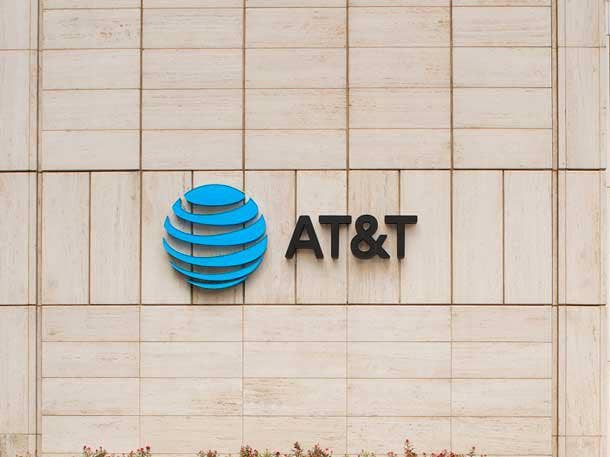Channel Partners Applaud Elliott Management's Proposed AT&T Shakeup
‘Some of these really big companies are trying to be all things to all people and it's not working because they truly lose focus of who they really are,’ according to one AT&T channel partner.

Activist investor Elliott Management wants to help AT&T return to its telecommunications roots -- and channel partners are on board with the initiative.
Elliott Management set its sights on AT&T on Monday when the firm revealed a $3.2 billion stake in the Dallas-based telecom giant and laid out a series of changes intended to boost AT&T's stock price.
In an open letter to AT&T, Elliott called into question the carrier's management team, as well as its aggressive acquisition strategy over the past several years that haven't added to AT&T's core telecom business.
"I think this is a good thing," said Shane Stark, director of vendor and channel relations for Carrier Access, a Clive, Iowa-based solution provider and AT&T partner. "Some of these really big companies are trying to be all things to all people and it's not working because they truly lose focus of who they really are."
[Related: 8 Things To Know About AT&T's Partnerships With IBM, Microsoft]
While many of AT&T's recent acquisitions have had "zero impact" on the channel, some of its recent buys also haven't proven profitable for the carrier, such as its 2014 purchase of satellite TV provider DirecTV and so far, its $85.4 billion mega-merger with media content giant Time Warner, Stark said.
But AT&T is hardly the only carrier that's recently made acquisitions that don't necessarily add to their core businesses, said one telecom-focused solution provider that partners that asked not to be named. Telecom service provider Windstream has acquired 15 companies since 2007, including cloud and colocation provider Hosted Solutions in 2010, and unified communications specialist Broadview Networks in 2017. Likewise, communications provider Avaya has made 15 acquisitions since 2001. Both companies have since sold off some of these assets after failing to turn a profit.
"Both companies ended up in Chapter 11 bankruptcy because they picked up all this debt from these acquisitions that seemed like good ideas at the time," the solution provider said.
Regional fiber providers, Stark added, are starting to "eat AT&T's and Verizon's lunch" because they are highly-focused on their strengths. Hosted voice and unified communications specialists are also nabbing market share from the incumbent carriers, he said.
"The companies that seem to be doing well -- the RingCentral's and the 8x8's -- they tend to just focus on their core businesses," Stark said.
The larger carriers are typically less nimble, having an increased emphasis on the solutions that are important to the channel would be a welcome change, said J.R. Vernick, president and co-founder of telecom services and consulting firm RDS Solutions, a Clinton, N.J.-based AT&T partner.
"Having the carriers focus on those core products and services that we continue to sell our clients and improve those products and the support around them and for us would be great," Vernick said.
Elliott's letter to AT&T said that the carrier's stock has underperformed due to strategic and operations setbacks that have eroded AT&T's business focus. These "setbacks" include a questionable M&A strategy that has included a series of deals totaling $200 billion over the company's history, Elliott said.
“Beginning the decade as a pure-play telecom company with leading wireless and wireline franchises, AT&T has transformed itself into a sprawling collection of businesses battling well-funded competitors, in new markets, with different regulations, and saddled with the financial repercussions of its choices,” Elliott said in its letter published Monday. “Elliott believes that through readily achievable initiatives — increased strategic focus, improved operational efficiency, a formal capital allocation framework, and enhanced leadership and oversight — AT&T can achieve $60+ per share of value by the end of 2021.”
AT&T, for its part, said it looks forward to engaging with Elliott. "AT&T’s board and management team firmly believe that the focused and successful execution of our strategy is the best path forward to create value for shareholders. This strategy is driven by the unique portfolio of valuable businesses we’ve assembled across communications networks and media and entertainment, and as Elliott points out, is the foundation for significant value creation. We believe growing and investing in these businesses is the best path forward for our company and our shareholders," the carrier said in its own letter to its board of directors.
Elliott in its letter also called into question the leadership of longtime AT&T CEO Randall Stephenson and suggested that changes be made to the executive team. A report surfaced on Tuesday that Elliott Management isn't keen on Stephenson's top deputy John Stankey taking over as CEO. Stankey was just promoted from WarnerMedia CEO to COO of AT&T last week.
AT&T isn't the only carrier facing a C-suite shakeup.
Basking Ridge, N.J.-based rival Verizon in 2018 named its former CTO Hans Vestberg as CEO. Under Vestburg, the company has been focused on its core networking and telecom business and made extensive cuts to its staff when it extended early retirement buyouts to thousands of employees in an effort to trim the carrier's costs by $10 billion by 2021.
CenturyLink, after its merger with Level 3 Communications, underwent an executive refresh starting with former Level 3 CEO Jeff Storey taking over as CenturyLink CEO when Glen Post stepped down in 2018.
"In a lot of cases companies like Elliott that have a lot invested, they want people they know and trust leading the company," Carrier Access' Stark said. "It's easier to move quicker and get to the end goal sooner."